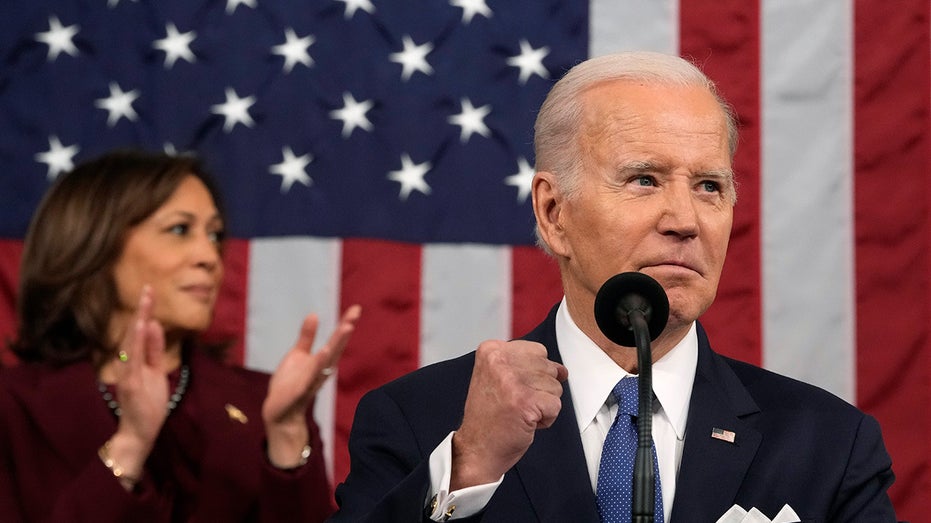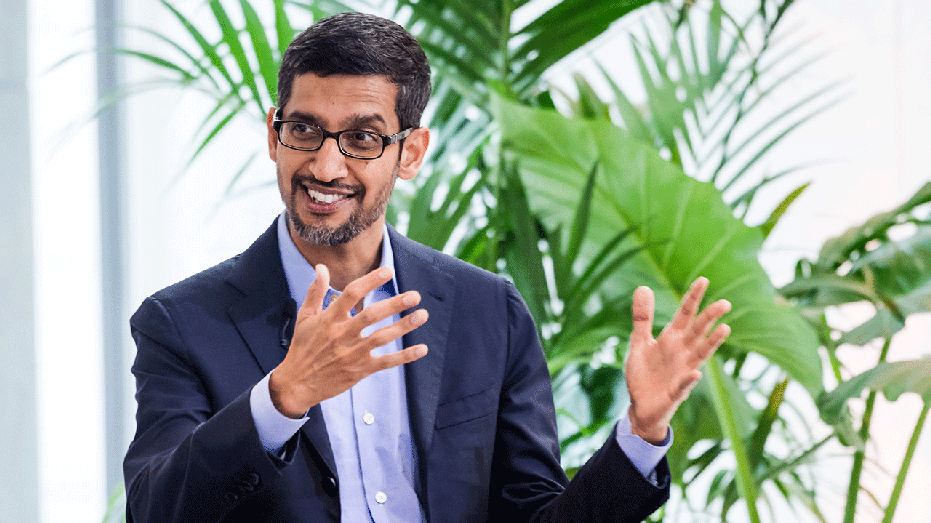Tech companies silent on details of AI meeting with Biden, Harris
Biden and Harris met with CEOs from Google, Microsoft, OpenAI and Anthropic on Thursday
The tech sector is strong with artificial intelligence: Daniel Newman
The Futurum Group CEO Daniel Newman and J.P. Morgan Asset Management's David Lebovitz provide insight on AI on 'The Claman Countdown.'
The four tech companies that attended a Thursday White House meeting on artificial intelligence with Vice President Kamala Harris had nothing to share with the public about an issue that Harris said has the potential to "increase threats to safety and security, infringe civil rights and privacy, and erode public trust and faith in democracy."
Google, Microsoft, Anthropic and OpenAI declined to answer detailed questions from Fox News Digital about the outcome of the meeting or how high-level political interest in AI might shape the way they develop this new capability in the months and years ago.
Google failed to respond to the query or follow-up questions on what the tech giant gleaned from the meeting and its view of how the White House is handling AI.
A representative for Microsoft replied to Fox News Digital by saying, "Microsoft has nothing to share," and did not respond to a later request for a written statement.
OpenAI told Fox News Digital in response to questions about an interview and meeting takeaways on the White House strategy, "We don't have anything else to add so it's a decline from us."
AI BRAIN ACTIVITY DECODER CAN REVEAL STORIES IN PEOPLES' MINDS, RESEARCHERS SAY

President Joe Biden dropped into a meeting on AI led by Vice President Kamala Harris on Thursday
Anthropic, a startup created by former OpenAI members that is working on its own chatbot similar to the latter’s ChatGPT, did not address Fox News Digital’s specific questions post-meeting and provided a single sentence on the outcome of the meeting.
"We were honored to meet today with Vice President Kamala Harris and other cabinet members, and look forward to continuing the conversation around how to build and deploy safer and more trustworthy AI systems," the company’s statement read. Anthropic declined an interview.
The lack of any significant statement from the companies left only the White House statement as a guide to how the AI experts, Harris and the some of the Biden administration's technology experts approached the meeting.
In a readout sent Thursday, the White House revealed that President Biden made a surprise appearance "to underscore that companies have a fundamental responsibility to make sure their products are safe and secure before they are deployed or made public."
AI PAUSE CEDES POWER TO CHINA, HARMS DEVELOPMENT OF ‘DEMOCRATIC’ AI, EXPERTS WARN SENATE

Google CEO Sundar Pitchai was among the executives at the meeting (Geert Vanden Wijngaert/Bloomberg via Getty Images / Getty Images)
"The meeting also included frank and constructive discussion on three key areas: the need for companies to be more transparent with policymakers, the public, and others about their AI systems; the importance of being able to evaluate, verify, and validate the safety, security, and efficacy of AI systems; and the need to ensure AI systems are secure from malicious actors and attacks," the statement read.
While still vague, it’s more detail than the CEOs have provided. Google CEO Sundar Pitchai told reporters "yes" when asked if it was a productive meeting after leaving the White House on Thursday afternoon. Microsoft CEO Satya Nadella ignored questions.
CLICK HERE TO READ MORE AI COVERAGE FROM FOX NEWS DIGITAL
The White House meeting came as part of a broader push by the federal government to learn more about and get ahead of AI’s rapid advancement, and possibly take further steps to regulate it.

The OpenAI logo is seen on a mobile phone in front of a computer screen which displays the ChatGPT home Screen, on March 17, 2023, in Boston. (AP Photo/Michael Dwyer, File) (AP Photo/Michael Dwyer, File / Associated Press)
While the Pentagon is seeking to invest more into research and development of the military’s AI capabilities, Biden rolled out a series of actions to be taken by the White House to "promote responsible AI innovation that protects Americans’ rights and safety."
CLICK HERE TO GET THE FOX NEWS APP
The White House also rolled out an AI "bill of rights" framework to ensure the technology does not impede on Americans’ privacy rights and civil liberties.
A flurry of new legislation in Congress, including a bill to set up an AI research task force and one to ensure AI could not autonomously launch a nuclear weapon, shows that lawmakers on Capitol Hill also want to take a more focused approach on AI. Senate Majority Leader Chuck Schumer rolled out a proposal last month aimed at creating a regulatory framework for the technology, though he has not given any public updates since then.




















